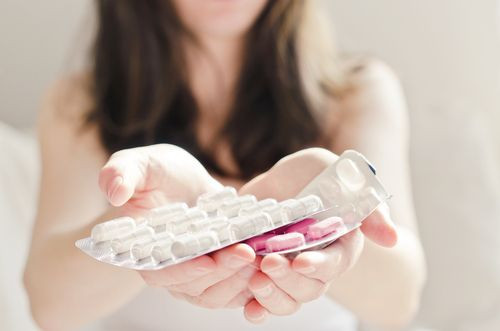Plan B Coming To All Rape Victims If New Bill Passes, Granting Unprecedented Access

Birth control and the morning after pill are both laden with opinions and controversy in both the public and political front, and now the proposal of a new bill will throw the spotlight on the rape victims. On Tuesday, the legislation was presented by five Democratic senators and would require all federally-funded hospitals to provide emergency contraceptives to women who have been raped.
They’re calling it “The Emergency Contraception Access and Education Act of 2014,” and it would ensure any hospital that receives Medicare or Medicaid funds would have the emergency contraceptive, also known as the morning after pill and plan B, which prevents pregnancy after unprotected sex. The bill was introduced by Sen. Patty Murray (D-Wash.), and Sens. Elizabeth Warren (D-Mass.), Barbara Boxer (D-Calif.), Richard Blumenthal (D-Conn.), and Cory Booker (D-N.J.) are signing onto the bill as co-sponsors.
“As we saw in the aftermath of the Hobby Lobby decision, and as we’ve seen in state legislatures across the country, Republicans are intent on standing in the way of women and their ability to make their own decisions about their own bodies and their own health care,” Sen. Murray told Time. “This means, now more than ever, it is our job to protect these kinds of decisions for women, their families, and particularly for survivors of sexual assault. Emergency contraception is a critical part of these family planning choices and it’s time Republicans join us in supporting this safe and responsible means of preventing unintended pregnancies.”
The bill will likely face opposition from Republicans, in particular Rep. Todd Akin (R-Mo.), who told a local television station “legitimate rape” rarely results in pregnancy because “the female body has ways to try and shut that whole thing down.” This, of course is simply not true. If a woman’s eggs are fertilized, regardless if the entry was forcible or consensual, pregnancy can occur at equal rates.
In the past, Akin has sponsored legislation that redefines rape in the federal law to limit funding for abortion providers. If this new bill passes, it would provide women with the emergency contraceptive regardless if they could pay for it, and the Secretary of Health and Human Services will be responsible for making sure they're educated by providing information on emergency contraception to pharmacists and health care providers.
Rape, much like abortion, has never been a topic to take lightly, and although many anti-abortionists say the woman is choosing to abort the pregnancy, therefore it’s her fault, it couldn’t be further from the truth. A rape victim had no say in, not only the rape, but also the pregnancy and no woman should be forced to go through a pregnancy with her rapist’s baby.
In America, one out of every six women has been the victim of an attempted or completed rape in her lifetime, with a total of 17.7 million victims, according to the National Rape, Abuse & Incest National Network. Nine out of 10 people who are raped in this country are women, which means the potential for pregnancy resulting in rape is high and the level of access should be able to meet the amount of victims. A simple supply and demand equation would tell any lawmaker the access to emergency contraceptive is currently imbalanced.
“It is unacceptable that a survivor of rape or incest can be denied access to emergency contraception in the emergency room, and therefore forced to carry a pregnancy caused by her attacker,” Planned Parenthood president Cecile Richards said in a statement. “Decisions about emergency contraception, like all forms of birth control, should be between a woman and her doctor, not her pharmacist, her boss, or her Congressman.”



























